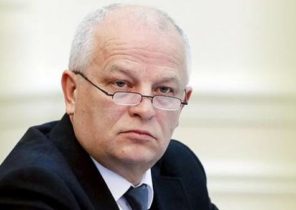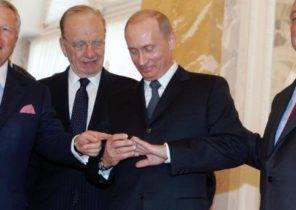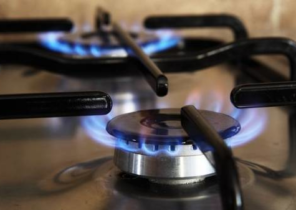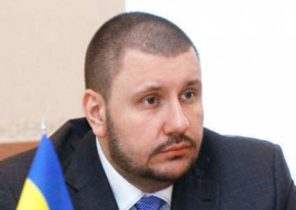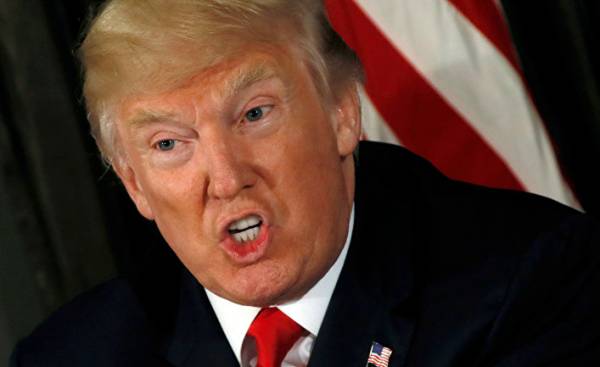
Those who feared trump’s isolationist, got a finger in the sky. He never locked himself in the United States, and vengeance is threatened with a rod of world policeman, North Korea, promising to use force if she will continue to get America and its neighbors and will not give up nuclear weapons. In addition, trump said about a possible military operation in Venezuela: this unexpected show of force was caught by surprise, the regime of Nicolas Maduro and brought a shock to all of Latin America. That is, improvisation is impulsive President? In regard to Venezuela, many in Washington think so.
In the case of the DPRK is quite different, although questions are also missing. According to a source in American intelligence, “is considered 12 scenarios,” a secret service “ready to act, but will make every effort to avoid war.” Pentagon chief James Mattis (James Mattis), adviser on national security Herbert McMaster (Herbert McMaster) and Secretary of state have taken active steps, while trump plays “the role of the showman”. A group of populists led by Steve Bennekom (Steve Bannon) pushes him to a military intervention.
A political scientist at Georgetown University Joshua Mitchell (Joshua Mitchell) is not surprised by such statements as Donald trump at a military solution to the Korean question. “He’s not an isolationist or interventionist in the plan as understood by the neo-conservatives and realist and a nationalist who wants out of the framework of the multilateral system and go back to the classic power play,” he says. According to him, the tramp sees the DPRK security problems for the US and its allies and wants to act: “to better understand the situation, you should go back to his inaugural speech when he endorsed the desire to change the system, both inside and outside. Another key element is its underlying philosophy: if you beat, you need to hit harder. It’s hard to imagine that trump will allow North Korean leader Kim Th Ynu to humiliate yourself.” “Trump stated this quite clearly, continues Mitchell. — Negotiating efforts of its predecessors in seeking to stop the nuclear program of North Korea yielded nothing. He warns the North Koreans and the Chinese that the time deviations over and that if necessary he will go to the clash”. Agree with him and his colleague, an expert on Asia Juan Balbina (Balbina Hwang): “do Not forget that Donald trump is a native of new York in Belfast. His own psychology is to never give up. I think he can do things he did not even a single President.”
For decades the behavior of US presidents that have been at odds with North Korea can be described as follows: a mixture of “convictions and fluctuations,” sums up former adviser to Nixon for national security Henry Kissinger (Henry Kissinger) in The Wall Street Journal. “North Korea’s behavior was blameworthy. In his address sounded the warning… But its nuclear program has only gained momentum,” he recalls. “Forget about it, but our presidents have always been inferior to the North Koreans, confirms the Balbina Juan. — In 1968, the American ship-a spy was captured by North Korea, and aboard sailors were tortured, but no law enforcement action was taken.” There was also a lot of other crises: when Carter, Clinton, Bush senior and Junior. Former Ambassador Chas Freeman (Chas Freeman) said a big mistake the absence of comprehensive talks with North Korea to overcome deep-rooted paranoia, that is the attitude of “not as a country but as to the nuclear issue”. As a result, “this mix of scaremongering and indulging North Korea now has elements of nuclear deterrence, but to try to change something already too late.”
Anyway, now Donald trump calls unacceptable the idea that Pyongyang could inflict on American soil nuclear attack. Is he serious or bluffing to force Koreans to retreat, and the Chinese to take action? According to a senior source, the first interpretation is that trump “only gives vent to his impulsive nature, going against the advice of the environment. Such a hypothesis could lead to uncontrolled escalation of tension”. The second interpretation suggests that the warlike trump hides the calculation: “He’s either hiding a confidential dialogue between Washington and Pyongyang, or demonstrated the intention to move away from the “strategic tolerance” of their predecessors to make everyone forget about the scandal around his Russian ties.” According to the source, it is quite possible “mixture of all options”.
However, the pressure (particularly economic) through which trump intends to force China to help him, raises doubts among specialists. In their view, Beijing has neither the desire nor the ability to solve the Korean question. “In its history, Korea has experienced a 72 invasion, mostly from China, and about any trust is not necessary to speak here,” says Chas Freeman. The supporters of the opposite position is that China could, if desired, to force North Korea to give in, cutting off her oxygen in economic terms (it is a supplier of all nuclear technologies). “China is beginning to understand that the US is not bluffing,” — emphasizes the intelligence source, seeing in it the cause for optimism.
In any case, the current geopolitical maneuvers seem all the more uncertain and delicate that the commander-in-chief Donald trump is facing rejection and contempt of the greater part of the elite of their country, ready to do anything to weaken it at the very moment when he needs to secure the trust, as shown by the criticism of his actions in relation to the riots in Charlottesville. That is, to the idea that trump might be tempted to indulge in dubious foreign adventure, to split ranks only a step. And some observers have made it.

